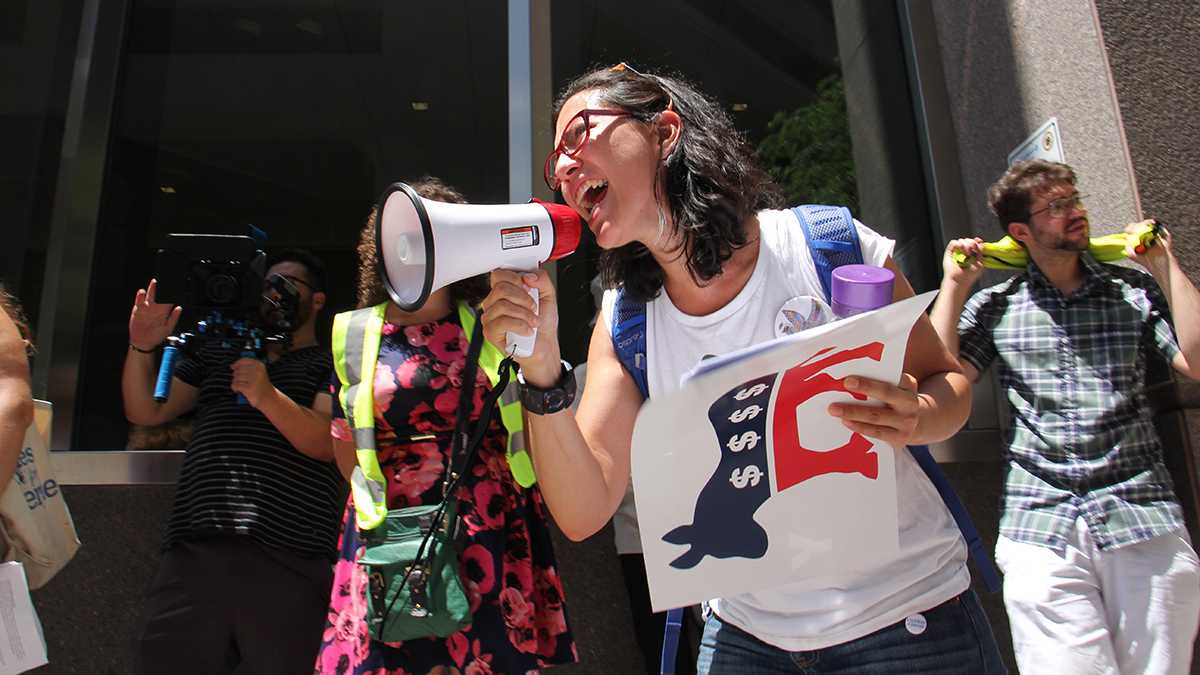Releasing DNC financial records now up to judge
Listen
Xelba Gutierrez leads a protest demanding that the Democratic National Convention reveal its sources of funding. (Emma Lee/WHYY)
The Philadelphia host committee for the Democratic National Convention is fighting to keep its fundraising records private.
A Court of Common Pleas judge heard arguments Thursday morning in a case brought by an independent journalist who sought the documents under the state’s Right-to-Know Law.
Specifically, Dustin Slaughter wanted to see the financial reports the DNC host committee is required to file with the Philadelphia Authority for Industrial Development, known as PAID, in exchange for a $15 million line of credit to help cover the costs of the event. According to a spokeswoman, the host committee has a goal of raising about $60 million with less than $2 million left to go before the DNC next week.
“In light of the fact the host committee is still short on their fundraising goals and that $15 million could come into play, the public has a right to know immediately what’s happening behind the scenes,” Slaughter said.
Last month, the state’s Office of Open Records ordered PAID to release the documents. However, the host committee appealed to the Court of Common Pleas.
During an emergency hearing in Judge Abbe Fletman’s chambers at Philadelphia City Hall Thursday, attorney David Pittinsky argued that the host committee is already required to reveal fundraising information 60 days after the convention and that federal law pre-empts Pennsylvania’s Right to Know Law. Additionally, he said, early disclosure could compromise efforts to finish raising the rest of the money.
“They want the information before the convention starts, and we are going to take advantage of the federal legislation, which gives us the right to file it no longer than 60 days,” Pittinsky told reporters after the hearing. “It’s very simple.”
Slaughter and his attorney, Drexel University law professor Chapin Cimino, argue the reports became public once they were filed with the city.
“They could have kept these records totally private, but they waived that right when they signed the contract,” Cimino said. “It’s not Dustin’s burden to prove that they’re public. It’s PAID’s burden to prove that they’re not.”
It’s not clear when Fletman will decide the case, but she promised to do so as quickly as possible. However, even if Fletman rules in Slaughter’s favor, the host committee is expected to appeal, meaning its fundraising information could remain under lock and key until after the convention.
WHYY is your source for fact-based, in-depth journalism and information. As a nonprofit organization, we rely on financial support from readers like you. Please give today.

